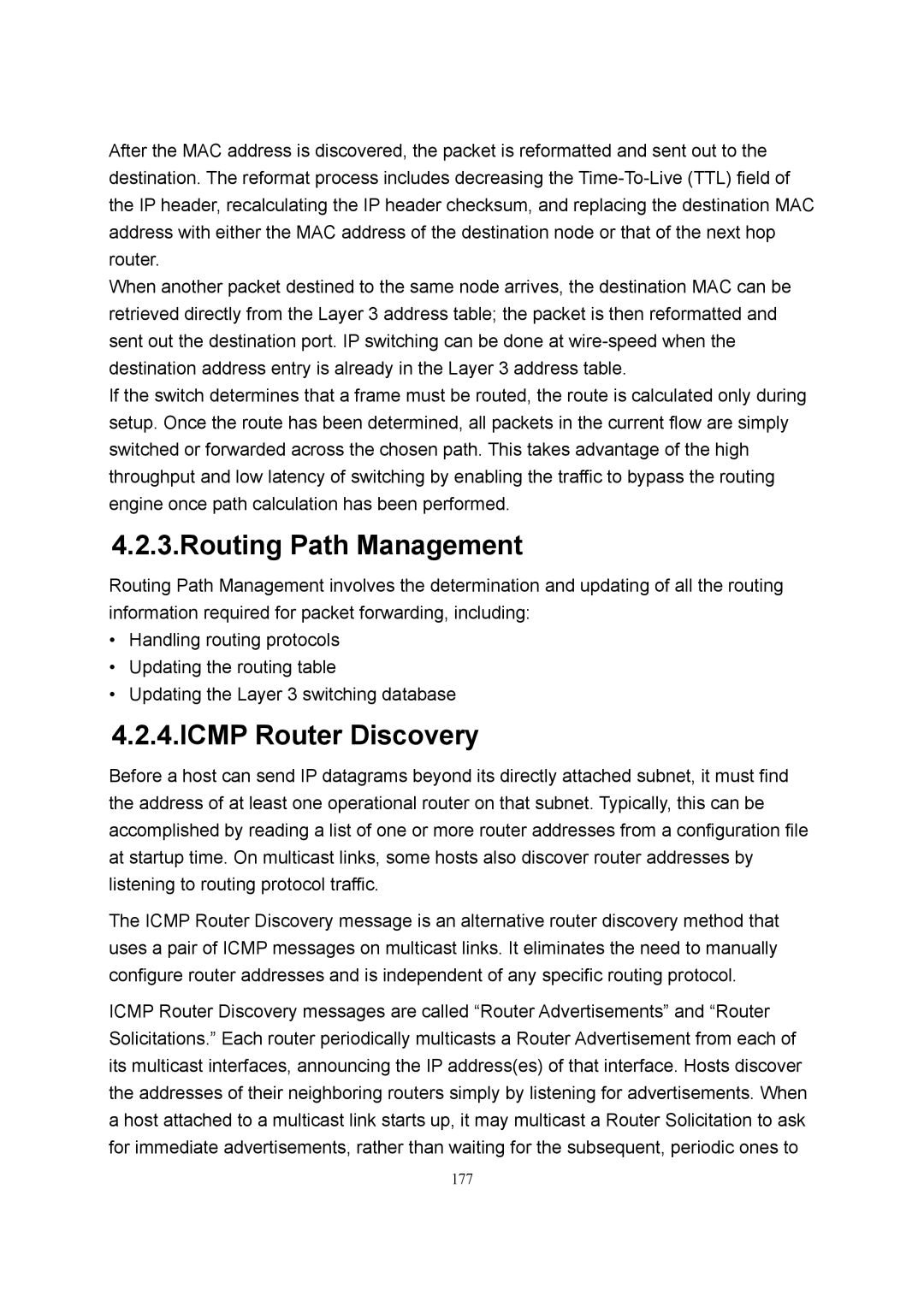After the MAC address is discovered, the packet is reformatted and sent out to the destination. The reformat process includes decreasing the
When another packet destined to the same node arrives, the destination MAC can be retrieved directly from the Layer 3 address table; the packet is then reformatted and sent out the destination port. IP switching can be done at
If the switch determines that a frame must be routed, the route is calculated only during setup. Once the route has been determined, all packets in the current flow are simply switched or forwarded across the chosen path. This takes advantage of the high throughput and low latency of switching by enabling the traffic to bypass the routing engine once path calculation has been performed.
4.2.3.Routing Path Management
Routing Path Management involves the determination and updating of all the routing information required for packet forwarding, including:
•Handling routing protocols
•Updating the routing table
•Updating the Layer 3 switching database
4.2.4.ICMP Router Discovery
Before a host can send IP datagrams beyond its directly attached subnet, it must find the address of at least one operational router on that subnet. Typically, this can be accomplished by reading a list of one or more router addresses from a configuration file at startup time. On multicast links, some hosts also discover router addresses by listening to routing protocol traffic.
The ICMP Router Discovery message is an alternative router discovery method that uses a pair of ICMP messages on multicast links. It eliminates the need to manually configure router addresses and is independent of any specific routing protocol.
ICMP Router Discovery messages are called “Router Advertisements” and “Router Solicitations.” Each router periodically multicasts a Router Advertisement from each of its multicast interfaces, announcing the IP address(es) of that interface. Hosts discover the addresses of their neighboring routers simply by listening for advertisements. When a host attached to a multicast link starts up, it may multicast a Router Solicitation to ask for immediate advertisements, rather than waiting for the subsequent, periodic ones to
177
